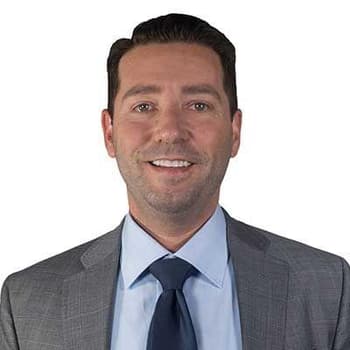Seeking Help During Continued COVID Restrictions
Written by Sam Rosenthal
& Medically Reviewed by Jonathan Strum
Medically Reviewed
Up to Date
Last Updated - 6/17/2022
View our editorial policy
Lately, news outlets and researchers are sharing countless glimpses into how the COVID-19 pandemic is affecting Americans. Many people are reporting increased mental health symptoms, such as anxiety and depression. Substance use rates are on the rise. Overdose rates are increasing throughout the country as well, making addiction recovery resources more important than ever.
Fortunately, the increased demand for treatment access has spurred many organizations into action. As the pandemic continues to negatively impact Americans, many health care groups, community centers, rehab facilities and government agencies have taken steps to help people find the life-saving care they need.
How the Pandemic Caused Overdose Increases
According to ODMAP, a nationwide overdose tracker, 62% of participating counties reported an increase in overdose deaths. In Washington state specifically, overdose death rates in August were up by 9% compared to the previous year. The drug crisis was already well underway before the pandemic began: in the entire United States, there were 74,000 overdose deaths between April 2019 to March 2020, up from 68,000 the year prior.
Factors in Rising Overdose Cases During the Pandemic
The pandemic has resulted in many issues that affect Americans’ mental health and substance use. Widespread unemployment left people struggling financially, while social distancing measures left many feeling isolated. Fear of the virus itself, as well as the uncertainty of how things would be fixed, added to the rising stress. The result is that many people struggling with their mental health turned to substances to cope.
While some were developing new addictions, others were relapsing back into substance use — sometimes leading to an overdose. Many public facilities faced budget cuts and the closure of harm-prevention services, such as methadone clinics and fentanyl test kits. This left people struggling without medication-assisted treatment.
How To Seek Help and Support Moving Forward
Right now, a great option for many people struggling during the pandemic is to take advantage of online resources. Ranging from recovery support groups to full-fledged treatment programs, online recovery services help people access life-saving care from the comfort of home.
Online Resources
Here are a few ways to access addiction treatment and support virtually:
- Teletherapy: The Recovery Village Ridgefield offers a telehealth app that connects clients to licensed therapists and addiction counselors who provide ongoing treatment and support.
- The Recovery Village Ridgefield recovery rooms: Free, confidential video chat rooms allow support groups to gather and continue routine meetings online.
- Online recovery meetings: Support groups like Alcoholics Anonymous and SMART Recovery can be a valuable resource for people recovering from addiction. The Substance Abuse and Mental Health Services Administration (SAMHSA) created a list of the different online groups and other helpful resources.
- National hotlines: The SAMHSA national helpline and Colorado helpline can connect you to local resources, such as rehab facilities, mental health care centers and other behavioral health services.
Find Help With The Recovery Village Ridgefield
While online resources can be helpful, some people may prefer or need to attend treatment at a professional rehab facility. The Recovery Village Ridgefield offers a full continuum of care, ranging from medical detox and inpatient treatment to outpatient care and aftercare programming. If you or a loved one is struggling with substance use or a co-occurring mental health condition, contact us today to learn more about how our services help you begin a happier, healthier, substance-free future.
Sources
- Zarefsky, Marc. “As COVID-19 surges, AMA sounds alarm on nation’s overdose epidemic.” American Medical Association, December 14, 2020. Accessed January 7, 2021.
- Stobbe, Mike; Sainz, Adrian. “US overdose deaths appear to rise amid coronavirus pandemic.” AP News, October 20, 2020. Accessed January 7, 2021.
- Substance Abuse and Mental Health Services Administration. “Your Recovery Is Important: Virtual Recovery Resources.” Accessed January 7, 2021.
View Sources
- Zarefsky, Marc. “As COVID-19 surges, AMA sounds alarm on nation’s overdose epidemic.” American Medical Association, December 14, 2020. Accessed January 7, 2021.
- Stobbe, Mike; Sainz, Adrian. “US overdose deaths appear to rise amid coronavirus pandemic.” AP News, October 20, 2020. Accessed January 7, 2021.
- Substance Abuse and Mental Health Services Administration. “Your Recovery Is Important: Virtual Recovery Resources.” Accessed January 7, 2021.
Authorship

 Insurance
Insurance About Us
About Us Our Facility
Our Facility Admissions
Admissions Programs
Programs Medical Detox
Medical Detox Inpatient Rehab
Inpatient Rehab Aftercare & Recovery
Aftercare & Recovery



